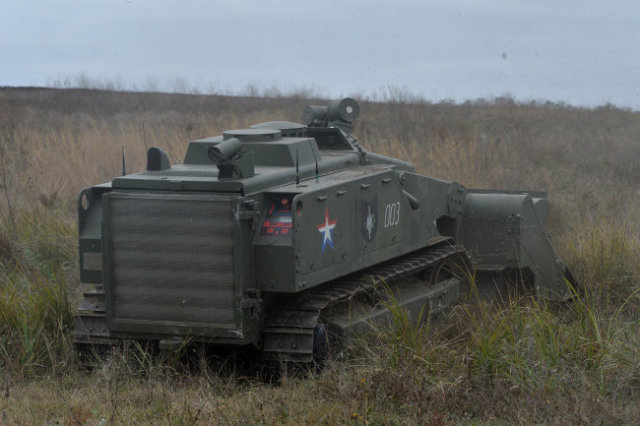In Nagorno-Karabakh, engineering teams of Russian peacekeepers are combing the area on the outskirts of the city of Mardakert. Before the armed conflict, there was agricultural land there. And when the war began, the military adapted them for artillery positions.
Gun shots have not been heard in Mardakert for a long time, but the locals are not in a hurry to go out into the fields. This is too dangerous, because there are unexploded mines and shells left in the ground. Russian sappers are engaged in their search and neutralization. They have enough work to do. According to the Russian Defense Ministry, in the last few days alone, the peacekeepers found more than 50 large-caliber ammunition and explosive objects in the Mardakert district.
God only knows how many more such dangerous finds the sappers will have to make. One thing is clear: until the complete clearance of the area, it will not be possible to use these fields for their intended purpose. First, the land must be cleared, and only then processed.
When going out to mine clearance, our military do not forget about their own safety. They perform dangerous work in the protective suits of the sapper and use modern means of searching for explosive objects-mine detectors IMP-S2 and special devices INVU-3M. In addition, they have at their disposal a multifunctional robotic complex "Uran-6". The operator can control it at a distance of up to 800 meters. The four high-definition video cameras available on the device provide it with a good all-round view.
The minesweeper robot is equipped with various trawls. But the main thing is that the designers installed equipment on it that allows not only to find and destroy all existing types of ammunition, but also to pre-identify them. That is, this complex will distinguish an air bomb from an artillery shell, and from an anti-tank mine. The military says that nothing like this has ever happened in the army before.
It is known that our sappers actively used" Uran-6 " to clean up the area in Syria. The robot mine detector has been working effectively in the North Caucasus for several years.
Yuri Gavrilov

